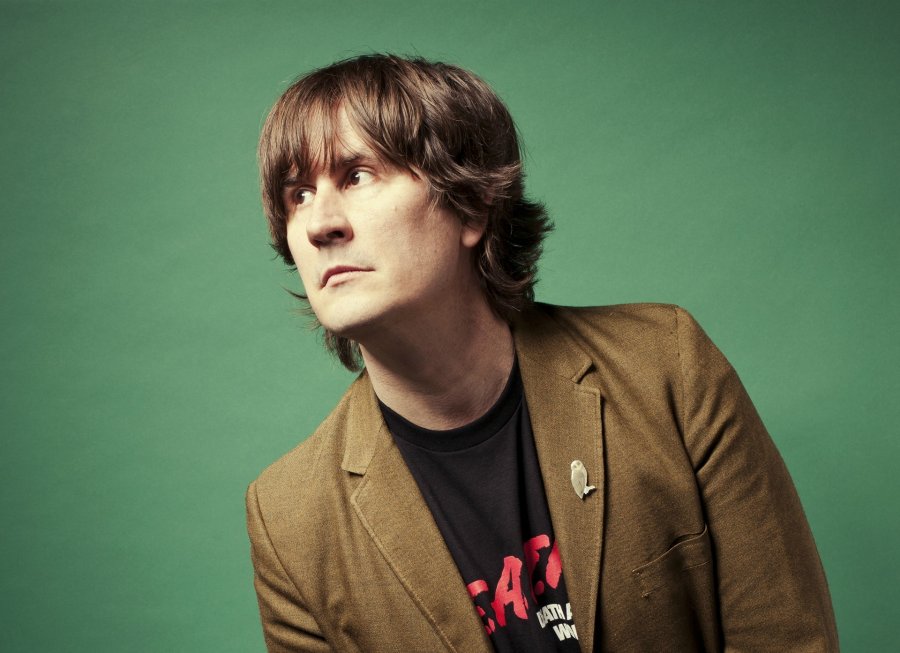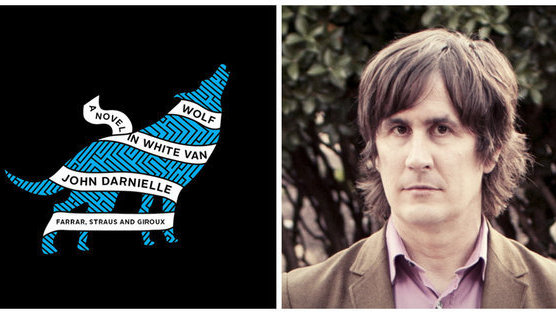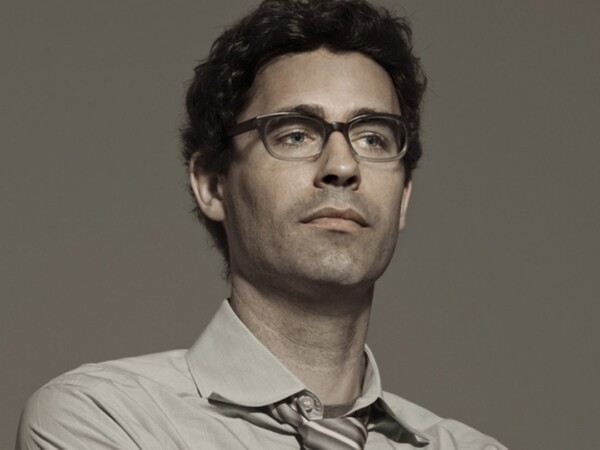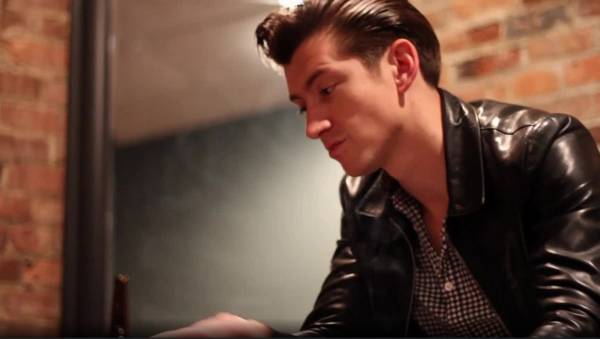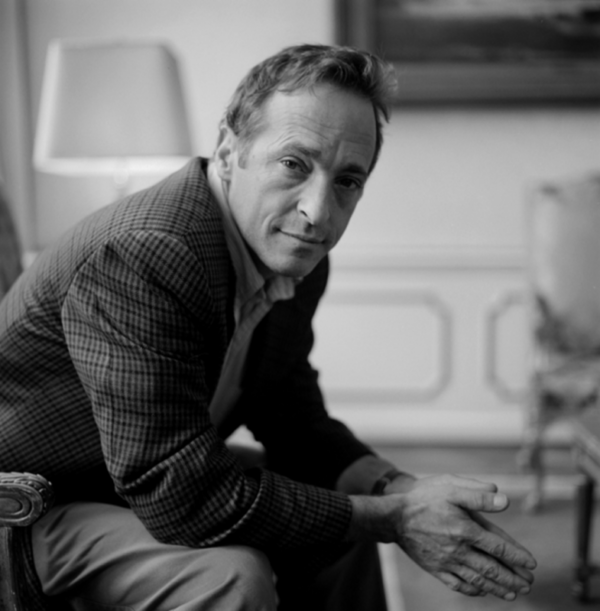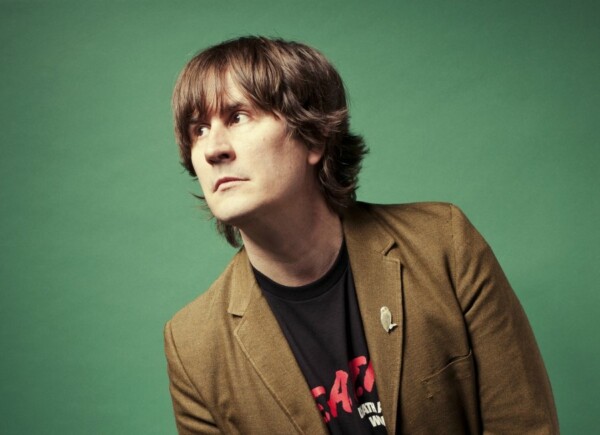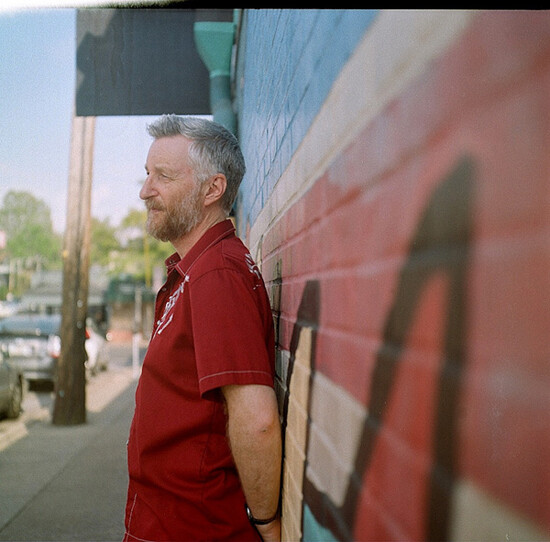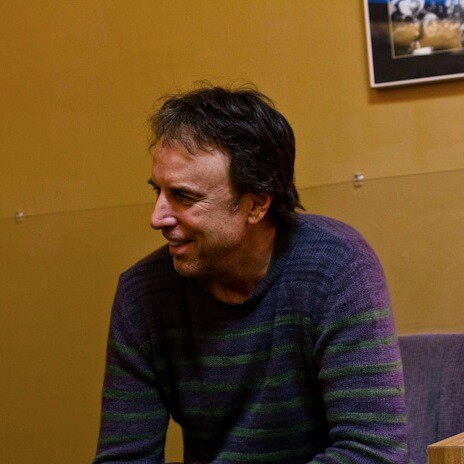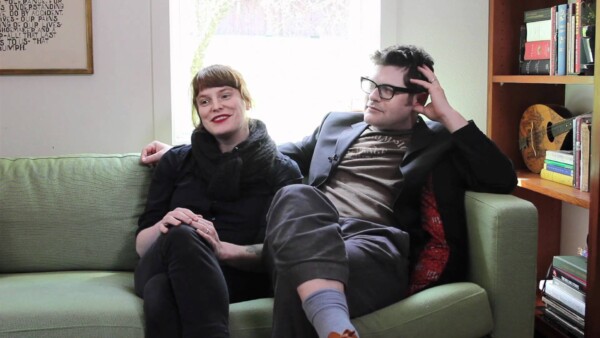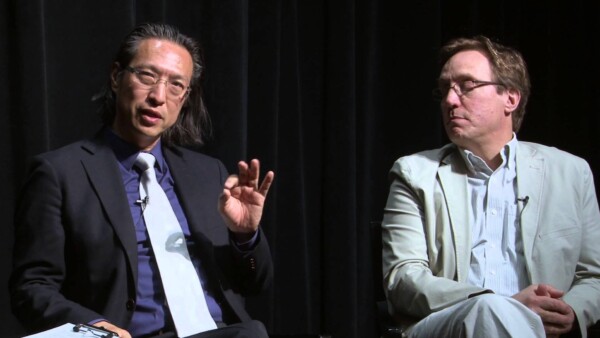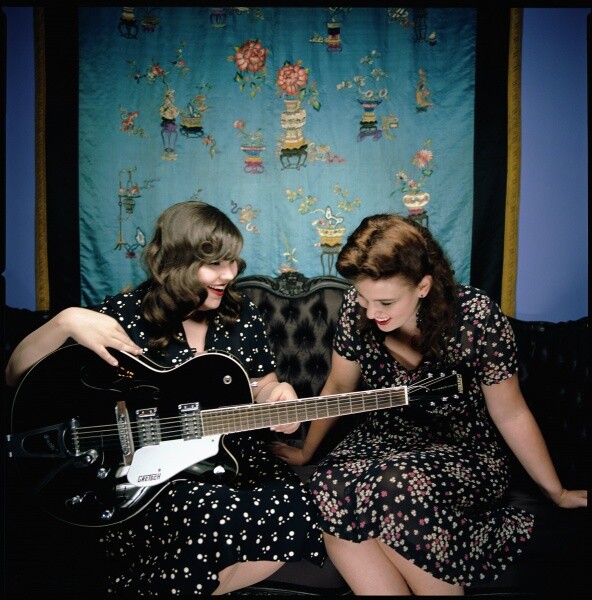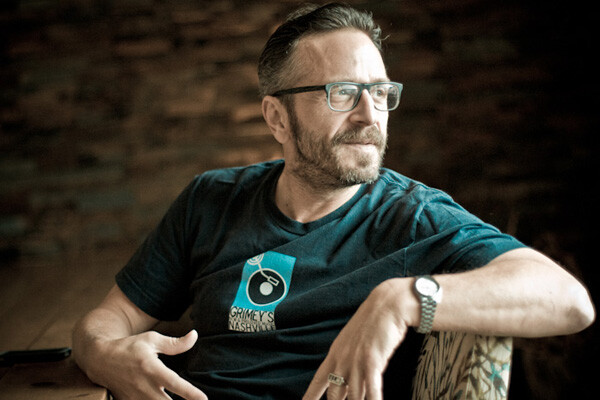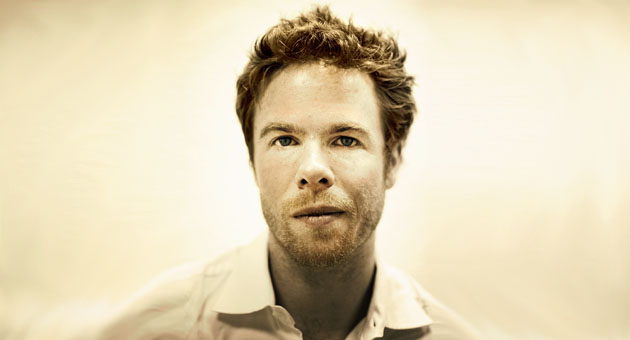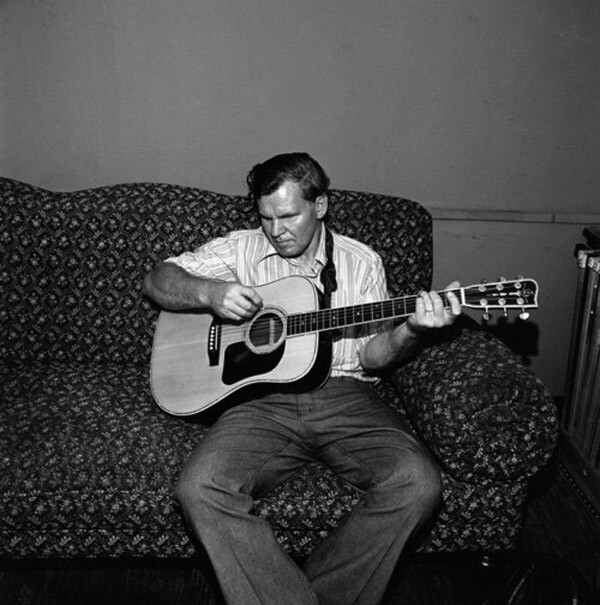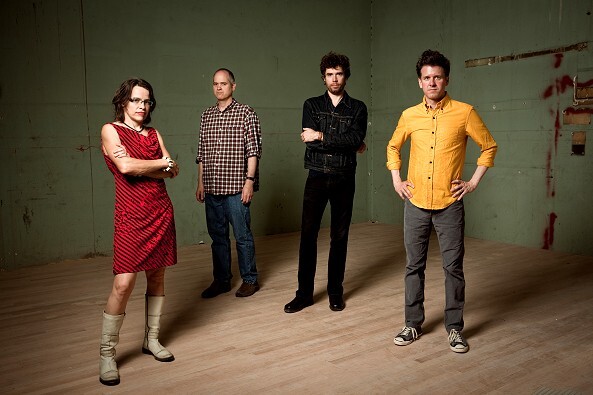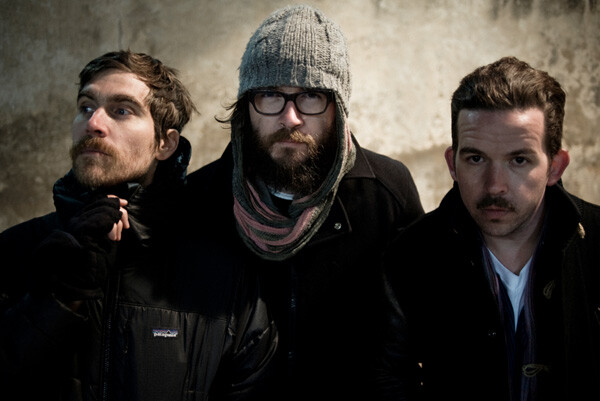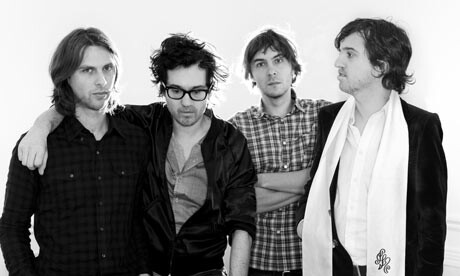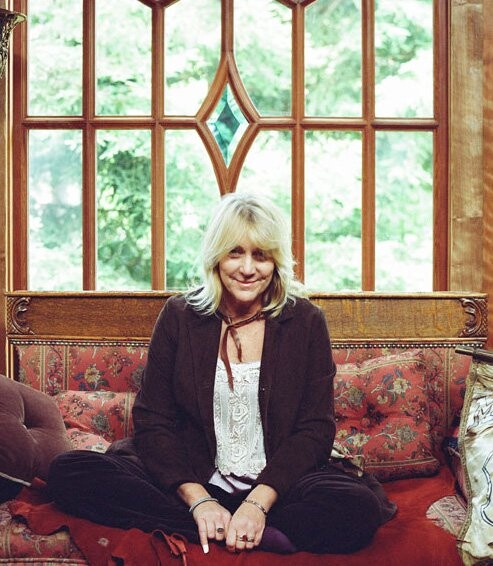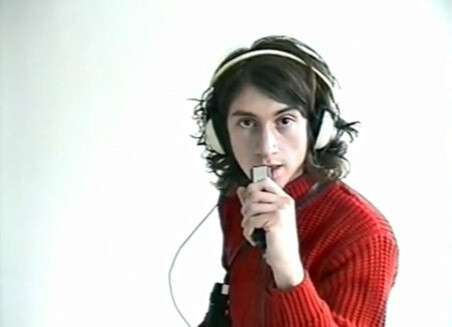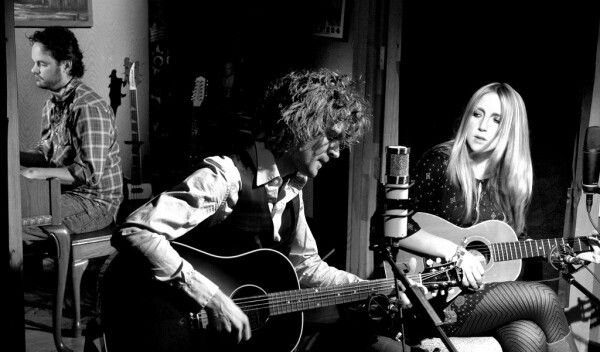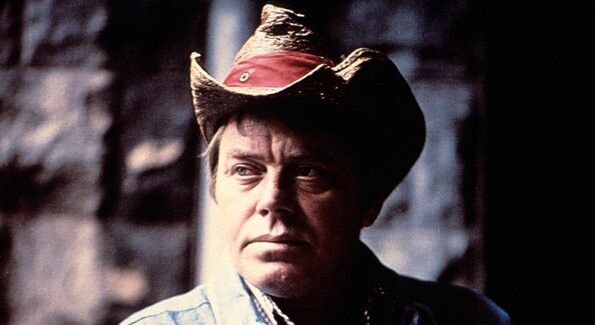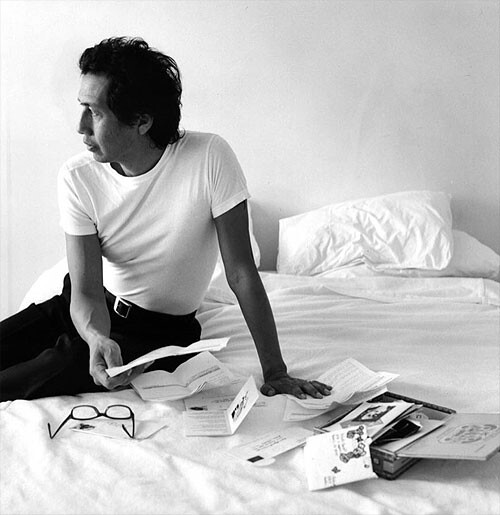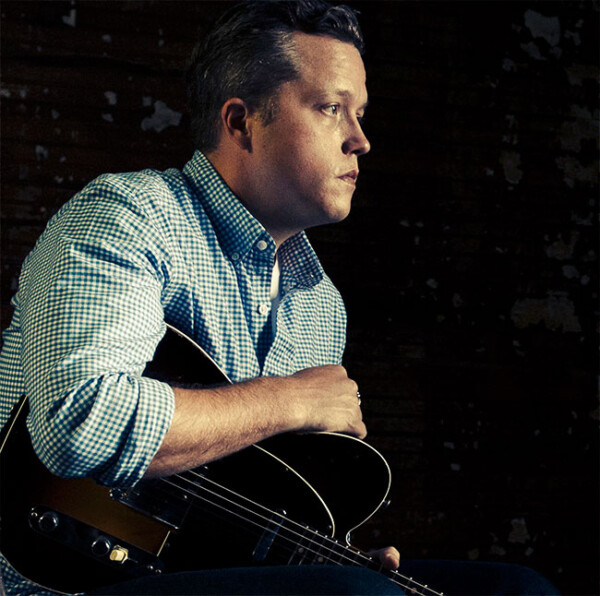In November 2014, Timshel met up with musician and novelist John Darnielle at the Hutton Hotel in Nashville,  Tennessee. They discussed his National Book Award-nominated novel, Wolf in White Van, as well as his journey into writing and the fantasy of writer’s block.
What’s your favorite drink?
I don’t have a favorite drink. I don’t do favorites of anything practically. I like a lot of things (laughs).
But there is a drink called Phal Ras in Madhur Jaffrey’s Indian vegetarian cookbook. You make a simple syrup out of ginger and then you combine it with juiced lemons, some orange juice and club soda.
That sounds amazing.
Yeah. It’s really just the best thing ever. It’s really, really super.
Have you developed any writing habits over the years? Writing in the same room or during the same time of day?
No. That’s just not how I do anything. I don’t have anything where I have to do it a certain way—about anything really. It’s just wherever I happen to be.
I use pens and pencils—whatever. I enjoy each one. And I can spin about, well, “here’s what I like about little notebooks†or “here’s what I like about big notebooks.†But there’s nothing … I take down ideas in the “notes†section of my phone. It’s just a medium.
Timshel: Did that at all while you were writing a novel?
Darnielle: Yeah, it’s the same basic idea. I write stuff down. I have a chalkboard in the kitchen where I will scrawl stuff down if I have a faint outline of an idea. And I’ll go into my office or whatever. But that goes from format to format.
Timshel: And you don’t need to be in a quiet place? You can write in public?
Darnielle: No. I write on planes. I wrote a lot of this book on a plane. Not the same plane (laughs).
Timshel: How long did it take to write this novel?
Darnielle: I don’t really know. I started this book right after I turned in Master of Reality, but it wasn’t going anywhere. It was just a thing to be doing. And then at some point, Chris from Gernert, who represents me, asked if I had anything to look at.
I said, “Well, let me throw this thing together that I’ve been hammering away at, sort of.†But I wasn’t really working on it. I had been working on albums and doing other things.
So I hammered it down into a sort of loose formation and sent it to a friend and said, “Does this look good to you?â€
And he said, “Yeah.†So I sent it to Chris, and he said that he could show it to people.
I think it would have been 2010 that I had six chapters done or so. And then the remainder took from 2010 until last February.
Timshel: I believe I read somewhere that you describe the difference between writing a song and writing a novel as the difference between building a fire and building a house, respectively.
Darnielle: Yeah. With a house you can knock down walls or put up a door you don’t like. You don’t redo fires (laughs). But with a house, you can redo all sorts of things, which happened a lot with this project.
Timshel: Do you find yourself having to exercise a different kind of patience when writing novels than when songwriting?
Darnielle: It’s just so different. You’re not going for the same effect. For me, fiction isn’t very cathartic. It can be a broad, long catharsis, but it’s a whole different thing—whereas music is physical. Essentially, it goes in through your ear. Fiction is cerebral, necessarily. It can do emotional stuff. But they don’t really compare—not for me.
Timshel: Joni Mitchell talks about moving back and forth between her painting and her writing as a necessity in her creative life. She calls it “crop-rotation†and has always talked about the fruit of being able to refresh your creative mind by moving back and forth between mediums. Do you experience anything similar?
Darnielle: Oh, yeah. Here’s the sense in which it’s all the same stuff. It’s all coming from the same place. It’s like you were talking about what I write on, and it’s the same sort of thing.
Your creativity before it gets formed into words and songs is the actual substance. No one else can see it, right? Unless you give it the shape of a song or a painting or whatever. So, absolutely.
While I was writing this book, I think I wrote five albums (laughs). There was lots of stuff, like poems and other stuff. And cooking, which I consider one of the creative arts. So, I really think that there is a sense in which anything—like a book or a record—is just the remains of the creative impulse.
Timshel: Who introduced you to good books?
Darnielle: From a very early age, my Dad. He was an English teacher and so I was reading books from very early on. But the denser stuff … my fifth grade teacher read The Lord of the Rings to us, and that was big in our class. And The Lord of the Rings was still counter-culture.
Timshel: That was fifth grade? That’s a perfect age for that book trilogy.
Darnielle: Yeah, I know. So it was ‘78, and we all learned the Elvin Rune Alphabet and assumed characters. And we had these little pewter figures that we staged battles with, so she was a big deal.
But the year before that was Mr. Brown, and he read us Thomas Rockwell’s How to Eat Fried Worms and stuff like that, which also counts.
Timshel:Â Do you think reading is different when you are hearing someone read out loud as compared to silently reading it on the page?
Darnielle: Yes. There’s a lot to say about that. So, it is my understanding that the written word, when it comes into being, records things that were already going on, right? So it’s already like a book is a relic of the creative process, the word itself is trying to freeze something that was actually alive once. And certainly in English, the tradition was people telling stories and songs, and there really was not any barrier between those things. You could sing it or you could tell it, whichever.
At some point, somebody wants to introduce an alphabet to that and distill it or render it in some way. And that’s weird. Now, it’s resulted in a lot of good stuff—but it’s weird.
Barry Sanders, one of my teachers from college, thinks that there is a point at which the oral origins of prose and poetry went away, and it became page thing. But I’m not sure about that.
I read everything I write aloud—I want it to sound good. I’m not as good at it as William Gass, who has this line that says, “By the mouth for the ear.†That’s the way I’d like to write. But that feels right to me—that it can only be as good on a page.

